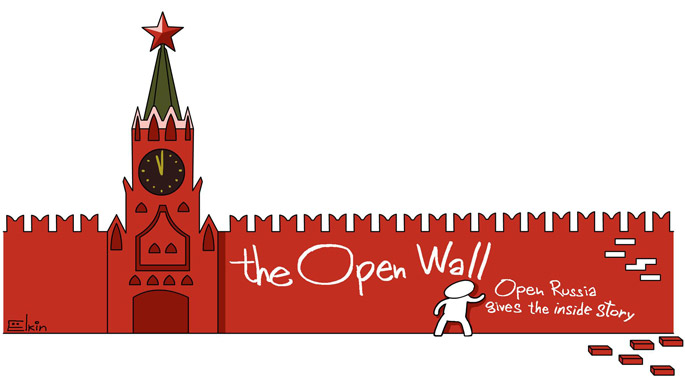A voice out of nowhere
A voice out of nowhere
Who would have thought that in 2016, provincial Russian newspapers, with their modest circulations, could still make a noise in national politics and grab everyone’s attention for a couple of days.

It all started with a comment in the TV listings (yes, they still exist, despite everyone now being able to access everything on their phone – even in deepest Siberia).
“Watch out! On the NTV channel you may come across falsified information or propaganda masquerading as journalistic content.” This bombshell of a comment – so completely unlike the usual toe-the-line wording – was made not on Facebook by some liberal journalist or blogger, but in Vecherny Yakutsk [Yakutsk Evening News], the most influential paper in the cold, diamond republic of Sakha. Then, about 100 different newspapers from the Volga to the Far East took up the cry, where it was seen by millions of Russians – and even more saw it as a screenshot on the Internet. But what was it about?
Back in March, NTV had broadcast a programme called “On the Payroll of the State Department,” which claimed that Vecherny Yakutsk had received money from the Soros Foundation, and was aligned with its ‘reactionary’ politics.
NTV was at first asked amicably by the paper to apologise. Then the issue went to the Social Press Complaints Committee; and the TV channel’s representatives failed to even turn up to the hearing. It was then that the Senior Editor of the Yakutsk newspaper, Leonid Levin, had the idea of responding in a rather unusual fashion – through a small note in the TV listings.
The idea was seized upon by the Alliance of Independent Regional Newspapers, of which Vecherny Yakutsk is a member. Within a week, dozens of papers had reproduced the announcement associating NTV with the word “propaganda.” And non-Alliance papers did the same.
These included both reasonably large circulation papers, and very small ones. Moscow correspondents got into terrible contortions trying to pronounce Omutninskie vesti [Omutninsk News], still managing to get the name of this regional town in Kirov Region wrong. The same went for Zmeinogorsk in the Altai Region, as well as Revda and Krasnoturinsk in Sverdlovsk Region – these and many other small towns that Moscow’s elite had never even heard of the day before, had achieved something that journalists in Russia’s capital hadn’t managed for a very long time: professional solidarity.

They were daring to challenge a powerful TV channel whose journalists regularly work alongside the security services, and fabricate films that are used either for propaganda or extra-judicial purposes; and they won. NTV’s ‘joke’ response on their website, which also included the regional paper’s original announcement, was pretty lame, and left nobody in any doubt as where the real truth and justice lay.
So what is it exactly that we can take away from this unexpected revolt? The conventional wisdom amongst Moscow’s intelligentsia and middle classes, sheltering in their Facebook ghetto, is that everything around them is one dreadful, reactionary, Putin-inspired madness, and that life in Russia’s small towns is reminiscent of some kind of dystopian novel or zombie-apocalypse TV drama. In their imagination they see crumbling factories, broken windows, men drinking themselves into an early grave, neglected old people, women who have let themselves go, children addicted to cheap and lethal drugs – with no silver lining, no hope for the future.
The provincial papers’ action – albeit a one-off gesture – shows the opposite. In the capital, people have been going on forever about it being time for “regime change,” and doing very little to make it happen; whereas, in the rest of Russia something has been quietly gathering pace. And this something is a provincial intelligentsia. The description might seem archaic, but what else can you call a newspaper publisher in the regional centre of Siberia’s back-of-beyond …
The provinces dragged Russia out of medieval barbarism once before, under the Romanovs, when the district councils, or zemstva, built national schools and hospitals. They laid the foundation for the political system that emerged with the first State Duma in 1906. The Duma was filled with exactly these types of today’s provincial publishers and editors; and I am sure that we too will see the Senior Editor of Omutninskie vesti in parliament – if not in a year, then in ten years. And by then we shall definitely know how to pronounce the word Omutninsk.




